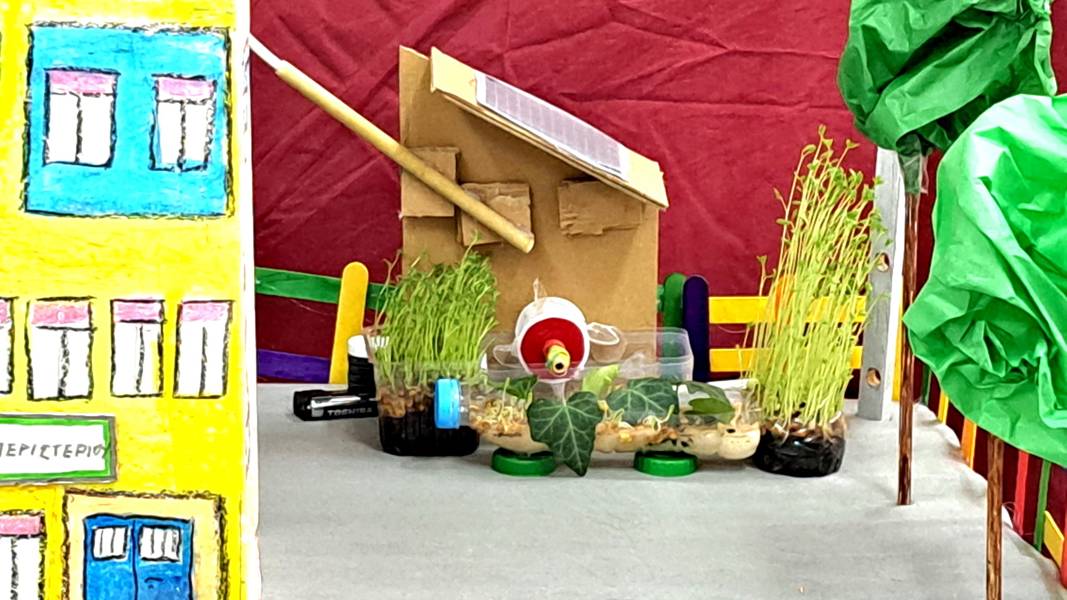
Kids turn their imagination to addressing climate change
These are some of the weighty issues that were addressed at a recent climate summit. No, not at COP26, the United Nations climate change conference in Glasgow, but at the summit between 32 fifth- and sixth-grade students that took place last month at the 102nd Elementary School of Athens. Do kids have the answers?
The 102nd Elementary School of Athens is one of the 40 schools in Greece participating in the WWF (World Wildlife Fund/World Wide Fund for Nature) environmental education program Students in Action for the Climate. Under the aegis of the Hellenic Ministry of Education, the Stavros Niarchos Foundation (SNF) joined other foundations in supporting the implementation of the program at primary and secondary schools, including special education schools, across Greece, with priority given to socially or environmentally vulnerable areas of the country.
The program includes a workshop in which students are divided into groups. Right from the start, they are given the space to take initiative and brainstorm ideas. Groups chose for themselves group names like “Climate Researchers,” “Direct Rescue,” and “Ready for Action.” Then, the project leaders, Eleni Svoronou and Nancy Koutava, introduce them to basic information about climate change, its causes, and potential real-world solutions. Afterwards, they move from theory to practice, with the students being asked to investigate their school’s carbon footprint and find practical solutions to reduce it. With the help of mentors, they develop their idea into a model and, after testing it, implement in on a large scale.
A solar-powered micro-bin comes with a tablet that alerts students when they have disposed of waste in the wrong bin. An isothermal reusable food container helps reduce the use of plastic containers. A green hedge, watered by local boreholes and installed on the north side of a school, reduces energy losses. These are just a few of the original ideas to come out of students’ brainstorming sessions, through a process that helps them gain familiarity with climate change and its consequences and develop their creativity while nurturing their science skills. The program offers participating schools a low-cost STEM toolkit. The best ideas are then awarded a cash prize to support their implementation.
Climate change is ultimately an issue that concerns young people and their future above all, and a shift in perspective can be achieved one school at a time. Or, as one student from the 102nd Elementary School of Athens put it when summarizing the essence of the program, “In order to reach high, you first need to build a solid foundation.”